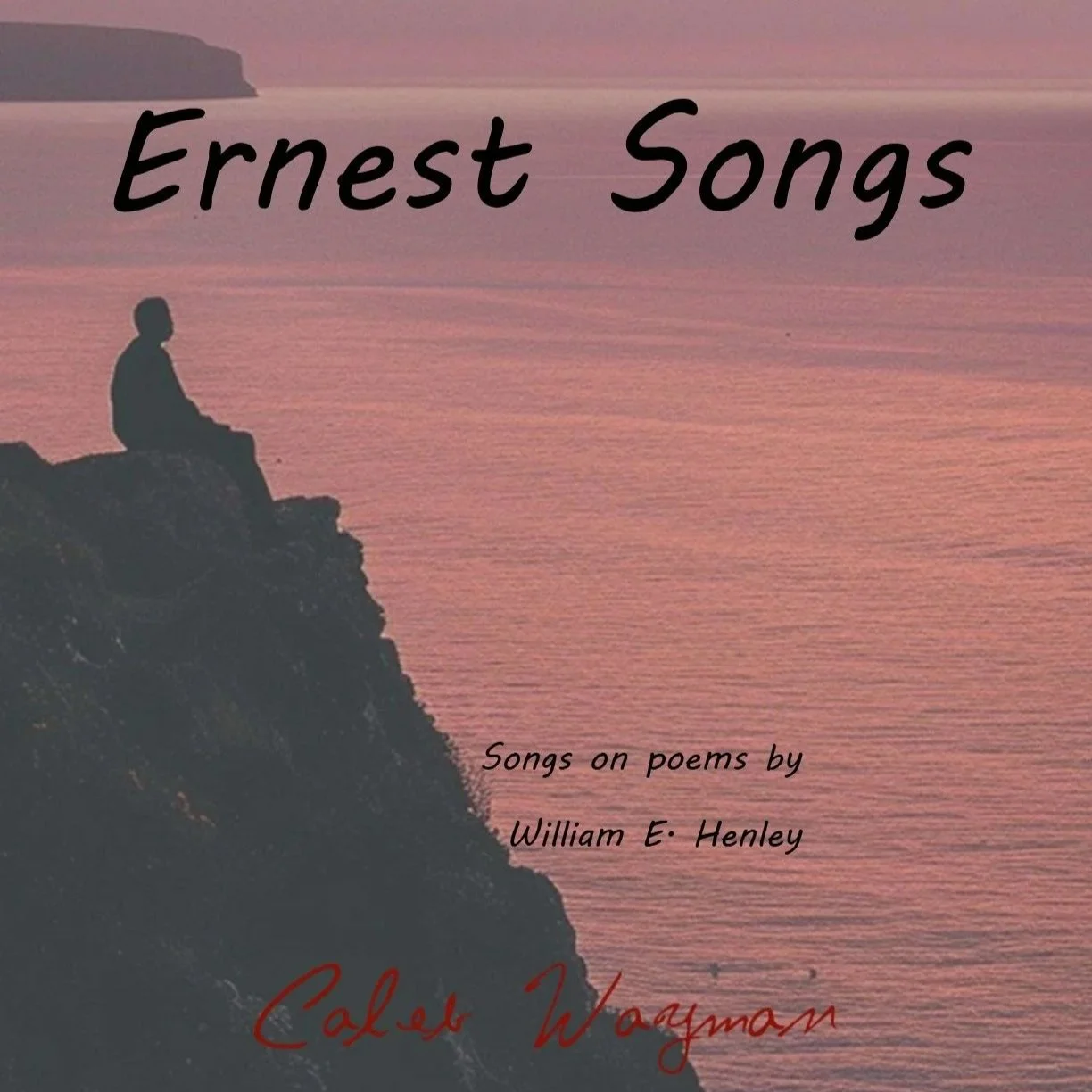 Image 1 of 1
Image 1 of 1


Ernest Songs
A set of six songs for baritone and piano with texts by William E. Henley. The set does not have a story through line but the poems chosen demonstrate the heights and slumps of the human spirit and the human experience.
I. Etching - (C#3-D4)
Is a description of a seemingly unremarkable man, yet the speaker is thoroughly enthralled by him. In a slightly gossipy jealous way the speaker talks about the man’s wife and how the man, if given distraction from his woes, would tell the speaker wonderful stories.
II. Life is Bitter - (C#3-G#4)
Shows the lowest points one’s mind can stoop to. The speaker condemns the world around them and the falsities that torture them. begging to be allowed to sleep the speaker has given up on this world and seeks only the comfort that sleep affords, while waiting for the approach of death.
III. Beside the Idle Summer Sea - (C#3-E4)
Is and evocative love song that calls upon a memory of the speaker and their love standing still and alone beside the sea where, left with only the presence of the other and the beauty of nature, they were supremely happy and free.
IV. A Wink - (C3-C4)
Is the feeling when someone you love and acre about greatly is far away and seemingly unreachable, but the insistence that you will never say goodbye even if you two never officially meet again.
V. When You Are Old - (C3-C4)
Is a sweet and comforting song where the speaker is comforting their love; telling them that even when the two of them have grown old and the speaker has passed away they will always be with their love in memories and in their heart.
VI. Invictus - (E3-G#4)
William E. Henley’s best known poem, Invictus, is a facing of an uncertainty of the future and a refusal to bend to the whims of fate. It is a cry up to heavens and whatever gods live there that you alone are in control of your destiny; you have born all the pain and devastation of life and will not be beaten down; you are the captain of your soul.
A set of six songs for baritone and piano with texts by William E. Henley. The set does not have a story through line but the poems chosen demonstrate the heights and slumps of the human spirit and the human experience.
I. Etching - (C#3-D4)
Is a description of a seemingly unremarkable man, yet the speaker is thoroughly enthralled by him. In a slightly gossipy jealous way the speaker talks about the man’s wife and how the man, if given distraction from his woes, would tell the speaker wonderful stories.
II. Life is Bitter - (C#3-G#4)
Shows the lowest points one’s mind can stoop to. The speaker condemns the world around them and the falsities that torture them. begging to be allowed to sleep the speaker has given up on this world and seeks only the comfort that sleep affords, while waiting for the approach of death.
III. Beside the Idle Summer Sea - (C#3-E4)
Is and evocative love song that calls upon a memory of the speaker and their love standing still and alone beside the sea where, left with only the presence of the other and the beauty of nature, they were supremely happy and free.
IV. A Wink - (C3-C4)
Is the feeling when someone you love and acre about greatly is far away and seemingly unreachable, but the insistence that you will never say goodbye even if you two never officially meet again.
V. When You Are Old - (C3-C4)
Is a sweet and comforting song where the speaker is comforting their love; telling them that even when the two of them have grown old and the speaker has passed away they will always be with their love in memories and in their heart.
VI. Invictus - (E3-G#4)
William E. Henley’s best known poem, Invictus, is a facing of an uncertainty of the future and a refusal to bend to the whims of fate. It is a cry up to heavens and whatever gods live there that you alone are in control of your destiny; you have born all the pain and devastation of life and will not be beaten down; you are the captain of your soul.